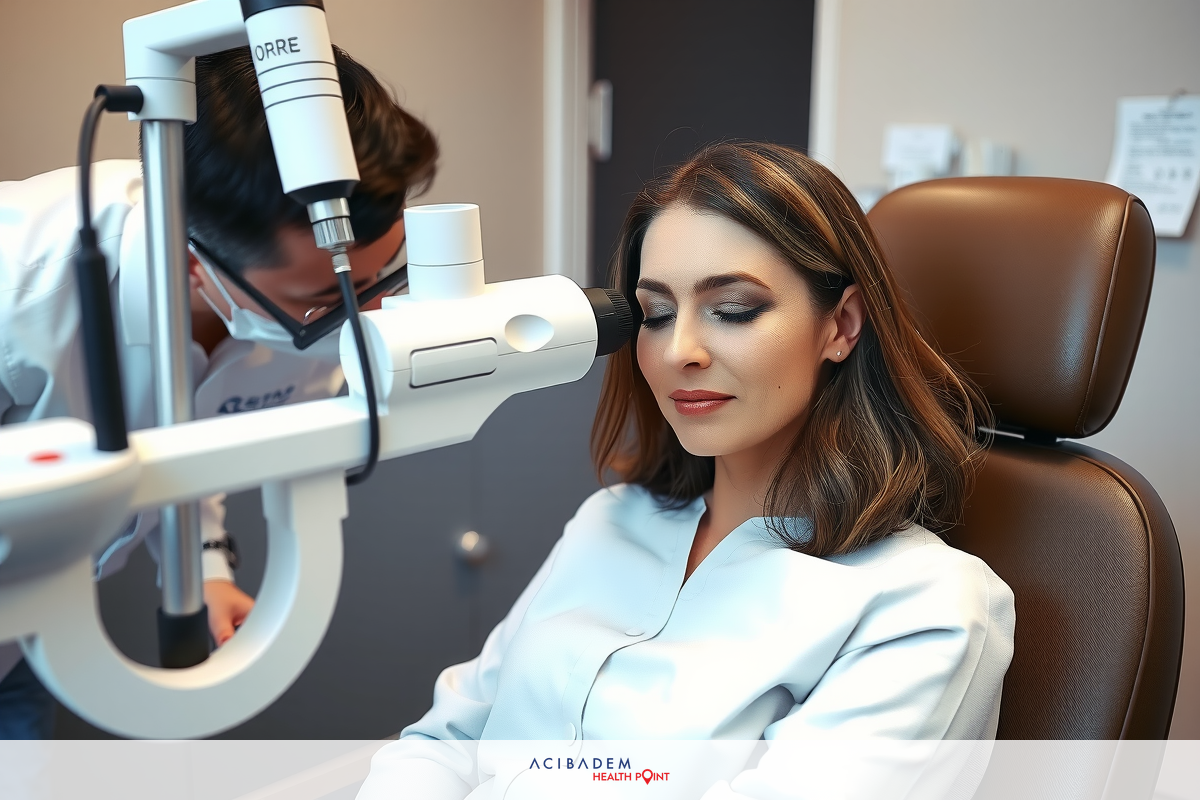How Does Laser Eye Surgery Work?
How Does Laser Eye Surgery Work? Stacked against the backdrop of evolving medical technology is an area you might have overlooked — laser eye surgery. You may question, how a simple stream of light can correct something as delicate and important as human vision. With amazing precision, lasers reshape the cornea; it’s fascinating!
Zigzagging through layers of detail adds depth to understanding this topic. Even if you’re not considering getting the surgery yourself, knowing more about it cultivates informative discussions around healthcare innovations. Think about those small circles on your phone for focusing images – the same concept applies to our eyes! Hard to grasp? Consider this: when out of alignment or irregularly shaped, visual clarity diminishes significantly – that’s where laser assisted correction comes in.
Unfolding this intricate process –what happens from preparation to recovery– unveils its striking complexity. Often we forget just how miraculous these seemingly routine medical advancements truly are until we take time to demystify them.
Types of Laser Eye Surgery
Waves of evolution in ophthalmology have brought forth numerous types of laser eye surgery. Each type, a testament to the progress made in vision correction procedures. Among them, LASIK (Laser-Assisted In Situ Keratomileusis), is probably most familiar to you. This procedure involves creating a thin surgical flap over the cornea and reshaping the underlying tissue with precision – an intriguing blend of science and artistry at work! Its popularity comes from its quick recovery time and painless operation.
On another spectrum lies PRK (Photorefractive Keratectomy). Unlike LASIK, this technique doesn’t involve making any corneal flaps; instead, tiny bits are painstakingly shaved off directly from the cornea using a specialized laser. While it might sound more intense than LASIK, one can see why it holds appeal for those with thinner or irregularly shaped corneas where flap creation could be challenging. There’s also glistenings around LASEK (Laser Epithelial Keratomileusis), a variation on PRK that adds an extra layer of protection via an epithelial sheet – somewhat like weaving creativity into medical innovation!
SMILE (Small Incision Lenticule Extraction) is relatively newer but certainly not less effective —think big impact through small incisions! During SMILE procedures, surgeons use femtosecond lasers to create tiny lenticules inside the cornea which are then removed through micro openings – almost sounds like magic! This technique reduces discomfort post-procedure since fewer nerves get disturbed during surgery compared to other methods.
Riding waves through each variant takes us deeper into understanding refractive surgeries’ intricate details—how even averagely similar sounding terms hide debatably elaborate processes behind them. Navigating these pathways uncovers just how multifaceted fields like ophthalmology truly are when you put on a magnifying lens!
The Process of Laser Eye Surgery
The prelude consists of an in-depth consultation with the ophthalmologist, ensuring everything from medical history to current state gets examined under the microscope figuratively speaking! No stone goes unturned in this phase as even minuscule details can impact overall results.
- Preparation: On D-day, before conducting any refractive surgical procedure, surgeons jot down crucial measurements — from pupil size to corneal thickness and curvature.
- Anesthesia: A must during surgeries but here’s a fun fact: general anesthesia isn’t required for laser eye procedures! Instead local numbing drops are used—so while you’re awake throughout, discomfort stays at bay.

In the image, there is a woman sitting in a dental chair with her head resting on a support. An ophthalmic instrument is being used to examine her eyes. The environment suggests a clinical setting, likely a medical office or examination room. - Corneal Reshaping: Now enters the real hero—the laser itself—with precision so sharp it makes art jealous! By emitting cool pulses of light onto your cornea, targeted tissue gets gently peeled away layer by thin layer.
- Final Correction: Post reshaping; flaps (if created earlier) get repositioned back without sutures—it clings by virtue of natural adhesive forces!
- Recovery: Lastly comes recovery —a saga in itself filled with protective shields or eye drops usage and avoidance from strenuous activities until clearance arrives from our protagonist—the surgeon!
With steps unfolding one after another like intricate dance moves choreographed meticulously for visual brilliance—we marvel at how magical these processes become when dissected beneath surface level descriptions—bringing forth refractive surgery realm’s charm out into plain sight!
Benefits and Risks
There’s a whirlwind of emotions attached to the idea of laser eye surgery – at one end, we imagine the freedom from eyeglasses or contact lenses while on the other, possible risks lurk around. It’s akin to walking on a tightrope where both sides offer contrasting views! So let’s sift through this juxtaposition starting with benefits first.
The most pervasive benefit strikes right at vision quality. An improved vision is not just seeing clearly – it’s cherishing sunsets as vibrant paintings, reading your favorite book without squinting or experiencing life’s little details with HD clarity! Hard to put a price tag onto such priceless experiences, isn’t it? Additionally,
reduced dependence on glasses expands horizons beyond foggy glasses or discomforting contact lens woes. Imagine going hiking without worrying about your spectacles slipping off—bring up adventure spirits indeed!
But wait; every rose comes tagged along thorns too. The arena of refractive surgery does bear an uncanny resemblance in this regard —while dazzling upsides pull us towards it like gravity—the lurking downsides refuse staying hushed beneath whispers! Dry eyes stand among common post procedure complaints—with many feeling constant itchiness due to lower tear production initially—although over time such symptoms usually diminish away leaving patients unscathed by their temporary discomfort.
Post-surgery, night vision issues can intrude into tranquility, causing glares and halos around lights during darkness. This prism effect can be disconcerting until the body naturally adapts. However, amidst the potential uncertainties, there’s a beauty within the chaos. All great discoveries come with possible risk factors. It’s how science pushes boundaries, constantly unveiling new dimensions in fields as intriguingly complex as ophthalmology itself.
Frequently Asked Questions
How quickly can I see results post laser eye surgery?
Mirroring a novel's climax after detailed build-up, immediate clear vision isn't always the grand finale following surgery! There's typical recovery time where your eyes heal and adapt to its newfound skills. But worry not—it’s more of a leisure walk than an uphill sprint—you'd usually start noticing improvements within days advancing towards optimal results over weeks.
Is the procedure painful?
Steer away from conjuring images of pain-induced grimaces—remember we mentioned local numbing drops earlier? That's right—while you might likely feel pressure during corneal reshaping—the overall procedure tends to remain surprisingly comfortable under expert hands!
Will I need glasses again later in life?
While refractive surgeries strive for reducing dependency on corrective eyewear—as eyes age naturally-defects like presbyopia (difficulty in reading up close) could return calling for readers or bifocals even post procedures—that said — major vision issues do stay generally corrected longer-term after successful surgeries.
Are there any side effects temporary or permanent due to laser eye surgery?
Just as navigating uncharted territories may bring unexpected turns, undergoing medical procedures can lead to a corridor of potential side effects alongside a avenue of benefits. Common complaints include dryness and glare sensitivity, while less frequent but severe outcomes can include infections or thinner, irregularly shaped corneas known as ectasia.
These answers are meant purely for informational purposes and should not replace individualized advice received by health care professionals. How Does Laser Eye Surgery Work?








